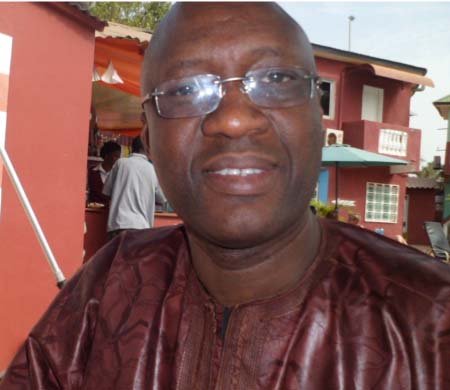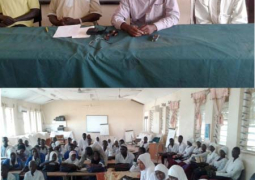
The
business community in the Central River Region has appealed to the management
of the Gambia Revenue Authority (GRA), to reduce taxes.
The
CRR business community made the appeal at the recently-ended regional taxpayers
meeting for the business community, local authority and traditional rulers in
the area, organised by the Gambia Revenue Authority and held in Janjanbureh.
The
two-day convergence that brought together members of the business community,
traditional rulers, and GRA officials, was meant to accord them the opportunity
to meet in a single forum and discuss the importance of paying taxes and on
time.
Speaking
on behalf of the business community in the area, Ebrima Njie, a businessman
residing in Janjanbureh, said taxes are very high and most of the
business people in the region are farmers, hence payment of taxes remain a
concern.
Mr
Njie, however, commended GRA for organising such an important forum, as it
would go a long way in enhancing their understanding on tax issues.
The
deputy Governor of CRR, Malang Saibo Camara, said the regional taxpayers’
seminar, was geared towards educating and sensitizing the local business community
and local district authority on the benefits attached to revenue collection.
According
to him, the taxes collected are ploughed back to the community in the form of
development projects and programmes.
He
said people need to know that GRA are collecting tax monies for the government
to be able to take care of development and related functions, for the good of
all in the country.
“We
need to contribute towards the development of the country, and we cannot develop the country without the
full participation of the citizenry.”
GRA,
he noted, is worthy of commendation for organising the regional taxpayers’
seminar in Janjanbureh for business community and local authority, so as to
create more awareness on the importance attached to payment of taxes and on
time.
Chernor
Sulayman Barry of GRA, in his remarks on the occasion, said the forum was part
of GRA’s attempt to educate and sensitise the general public on taxes.
“We
are aware that the Income and Value Added Taxed Act was passed into law by the National
Assembly in June 2012 and became operational in January 2013,” he said, adding
that this effort was geared towards modernising the tax system and improving
compliance.
The
objective of the legal and the financial management reform undertaken by the
government aims at promoting macroeconomic stability; improved revenue
mobilisation; promote efficiency in the resource allocation, among others.
He
said the seminar was part of a series of programmes being undertaken by key
stakeholders in the country, to enhance understanding and improve compliance.




